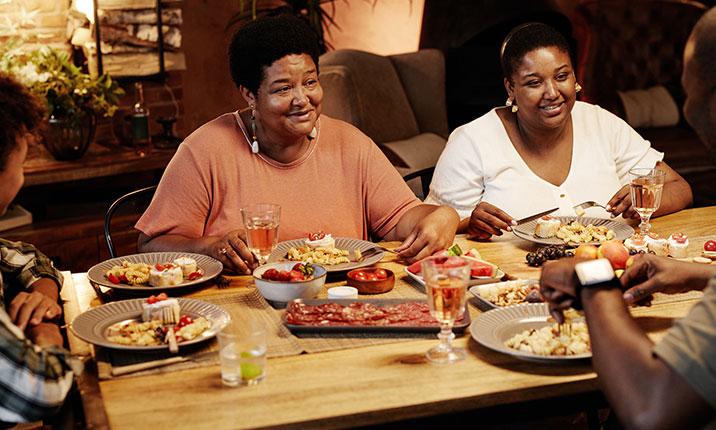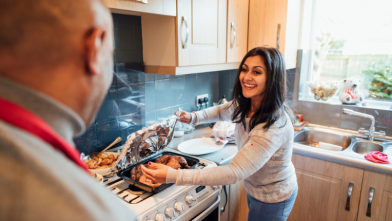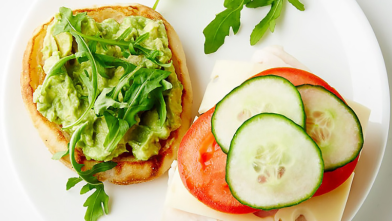This can be especially difficult over the holidays when carbs and fat-laden foods are everywhere. Your strict gym routine dissolves, along with your healthy eating habits. And, if you’ve lost some weight or told family or friends about your new lifestyle, you’re now under closer scrutiny by people eager to play diabetes cop.
Instead of self-shaming, being stressed, or just giving up, there are ways to modify your routine and stay close to your established routine and goals.
- Take a walk. If you know that there’s some heavy-duty eating ahead and you can’t get to the gym, take a walk. Get out first thing in the morning or after a meal. Invite someone to go with you. Look for other ways to get in some exercise, like swimming, playing tennis, or skating if they’re available. Or turn on music and get everyone dancing.
- Bring a healthy dish to a family potluck. Who wouldn’t love the opportunity for someone else to contribute to a meal? And that gives you a little control over what you eat.
- Eye the buffet table before picking up your plate. Step back and scope out your choices. Or ask the host what is being served so you can figure out what to take. Fill most of your plate with salads and veggies first, then make room for meats and starches.
- Take small portions. Whether it’s your mother-in-law’s garlic mashed potatoes or your cousin’s barbecue, you don’t want to insult the cook, but you still want to be careful. Take a small slice of the dreamy pie. Share a serving with your spouse or another guest. Be choosy about eating what you really want instead of eating stuff because it’s there. Practice saying, “No thank you.” Honestly, it’ll be okay, and you’ll feel stronger for giving yourself permission to watch out for your health.
- Set boundaries. Family can be loving. Family can also push buttons. Learn how to say no to whatever you don’t want—from alcoholic or sugary drinks to extra rich food or outings where you don’t feel you can exert self-control. Take care of yourself.
- Stand your ground. Has your mom given you that look when you took a sliver of pie? Has your brother-in-law decided to share his uninformed wisdom on carbs? Don’t cave or stress out. Plan ahead and come up with a statement that will politely let others know it’s none of their business. It could be, “People with diabetes can eat anything, just like anyone else, it’s just a matter of how much.” Or “Thank you for your concern, but I have this under control.” Or just smile and change the subject or move away to chat with someone else.
Finally, be thoughtful and compassionate with yourself. Eating something that’s not especially healthy will not bring down the wrath of the diabetes gods. Nor will skipping a gym visit. It’s just one little moment in time. Rather than get upset over a lapse, consider how you can learn from it and move forward with a more realistic plan.








